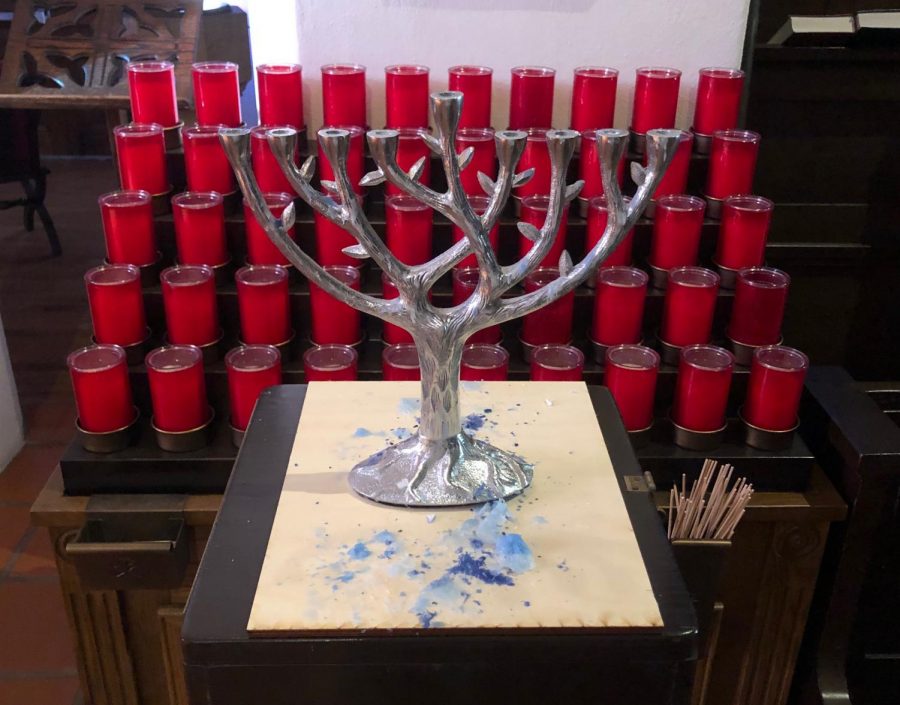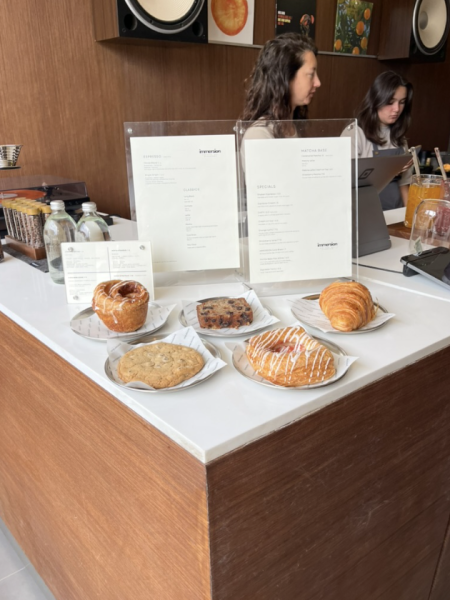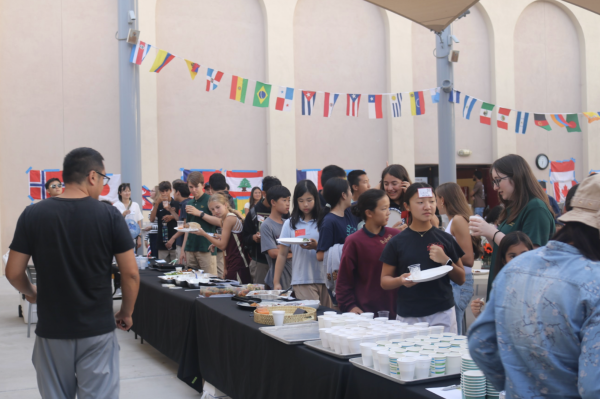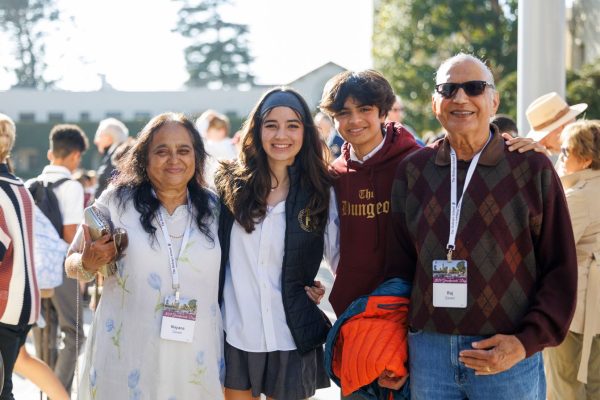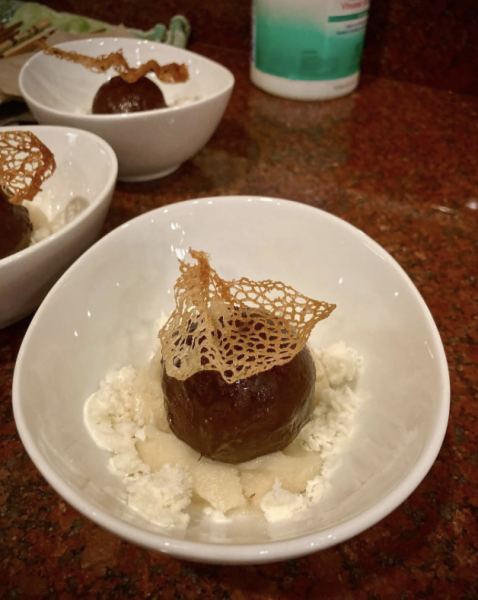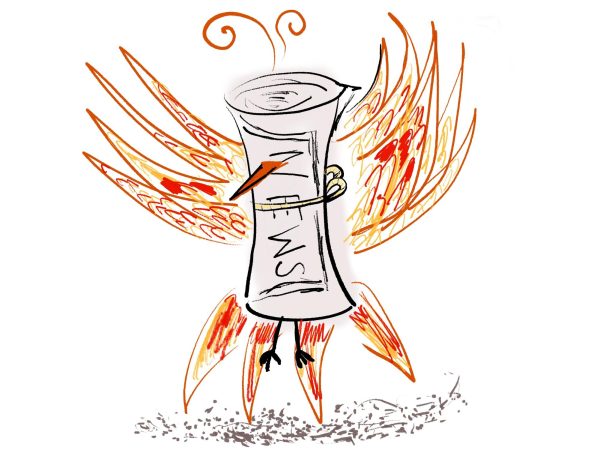Hanukkah 101
Hanukkah is celebrated with a nine-candled menorah, food, and games.
Hanukkah, or Chanukah, is the eight-day Jewish celebration commemorating the rededication during the second century B.C. of the Second Temple of Jerusalem, where, according to legend and the Talmud (one of Judaism’s most sacred texts), Jews rose up against their oppressors in the Maccabean Revolt. In their rededication of the Second Temple, Judah Maccabee and other Jews were astonished when a menorah’s candles burned for eight nights despite only having enough olive oil for one day. While there are many other interpretations of its historical origins, Hanukkah usually relates the miracle that happened when Jews maintained their faith and hope centuries ago. Eliana Birnbaum-Naul (‘23) said, “Like most of the stories behind Jewish holidays, the one behind Hanukkah is they tried to oppress and kill us but we’re here – Let’s eat!”
Hanukkah means “dedication” in Hebrew, and is often called the “Festival of Lights,” as it is celebrated with the lighting of a menorah, traditional foods, games and gifts. Sydney Gerlach (‘20) described, “Hanukkah is a really nice time since I have dinner with my family every night and we light the menorah and exchange gifts. It’s especially nice since I’m so busy and don’t get to spend a lot of time with my family during the school week.” Like Christmas, it falls on the 25th of the month — but the Jewish month of Kislev, which is determined by the lunar calendar. As a result, Hanukkah falls on a different day every year (this year, it begins on the 22nd of December and ends on the 30th).
In fact, many people know little about Hanukkah. Hanukkah actually used to be a fairly minor Jewish observance and is not mentioned at all in the Bible; rabbis established it much later to commemorate the events of the historic battle. It is often overshadowed by its proximity to Christmas, but holds its own in the unique traditions it entails. Eliana added, “Hannukah is actually a pretty minor holiday, and in the U.S it is often a reflection of Christmas. This is pretty much the only Jewish holiday where something like that has happened, so people tend to have a pretty warped image of the holiday itself.” Jonas Pfefferman (‘24) affirmed: “It’s just more relaxed in the sense that there’s no service to go to and minimal prayers and rituals.”
The celebration of Hanukkah is centered around and begins with the menorah; on the first night of the holiday, one candle is lit, and on the second night, the second candle is lit. For eight days, a candle is lit every night until all eight are lit on the last night. There is also a ninth candle in the middle called the shammash that is used to light the other candles.
Jewish children often play a game called dreidel, in which all participants start with an equal number of a treat or item and gamble between each other by spinning a four-sided top that determines certain outcomes, like getting all, half, or nothing from a pile in the middle. Interestingly, the four letters on the dreidel (nun, gimel, hey, shin) stand for the Hebrew phrase, “Nes gadol haya shaam,” meaning “A great miracle happened there.” Other traditions include eating fried foods like latkes, which are fried potato pancakes that are often eaten with applesauce or sour cream. Sydney Gerlach (‘20) expressed, “It’s always fun to spend an afternoon making latkes with my aunt, mom, and grandma.” Some Jews honor the holiday by eating donuts, or sufganiyot in Hebrew, which are filled with either custard or jelly, deep-fried, and sprinkled with sugar.
In fact, members of the middle school Jewish Student Association (JSA) hosted a Hanukkah chapel around two weeks ago. Tali Ben-Yehuda (‘25), a member of the group, shared, “The chapel talk about Hanukkah went well. Jonas and Kayla Pfefferman (‘24 and ‘26), Raphael Delgado (‘24), and I shared our stories and told the traditions that we share, such as eating latkes, lighting the menorah, and sufganiyot, jelly donuts.” Raphael explained, “At Bishop’s, really all I do for Hanukkah is maybe give a speech and go to a party, but at home, every night, I’ll light candles and say prayers with my family. This year I’ll probably go to synagogue one out of eight nights just to be there with everyone else, even though there is no service for Hanukkah.”
So, in the spirit of the holiday season, one might want to consider celebrating Hanukkah with a friend or relative for its compelling history, festive ambience, and tempting food.


